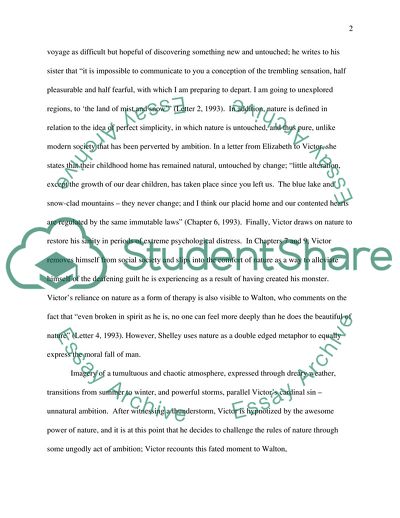The Significance of Nature in Frankenstein by Mary Shelley Essay Example | Topics and Well Written Essays - 1500 words. https://studentshare.org/literature/1746478-the-significance-of-nature-in-frankenstein-by-mary-shelley
The Significance of Nature in Frankenstein by Mary Shelley Essay Example | Topics and Well Written Essays - 1500 Words. https://studentshare.org/literature/1746478-the-significance-of-nature-in-frankenstein-by-mary-shelley.


